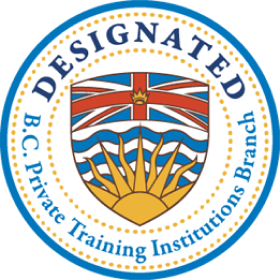GET MORE INFO NOW!!!
Start your journey towards a new career today by requesting program details.
 Financial Assistance
Financial Assistance
 Career Options
Career Options Start Dates
Start Dates Job Opportunities
Job Opportunities

Assessment
Is Career Training Right For You? Find Out!
Posted by AOLCC | 27th June 2023

If you are looking for a career in healthcare where you can help others, chances are you have thought about becoming a medical office assistant or a unit clerk. At first glance, both career paths may seem similar, but professionals in these two areas handle different tasks. While there may be some overlap in terms of general administrative skills, unit clerks tend to focus on clerical tasks and getting paperwork ready, leaving patient interaction to medical office assistants.
Although both medical office assistants and unit clerks play an important role in their communities, understanding how the specific responsibilities, training, and work environments differ is essential for those looking to enrol in a diploma program. Here’s what you need to know about these career paths, and how you can get the best of both worlds in our Medical Office Assistant with Unit Clerk program.
Let’s start with some similarities. Both medical office assistants and unit clerks are in charge of performing administrative tasks such as handling paperwork, maintaining patient records, scheduling patient appointments, and ensuring operational smoothness. Therefore, those considering a career path in these areas must possess strong organizational, interpersonal, and computer skills.
In addition to this, both roles require an in-depth knowledge of medical terminology. Whether you are considering medical office assistant training or unit clerk training, you will have to get familiar with different medical terms and abbreviations used in the healthcare industry. This will be useful for handling patient records, completing medical orders, and managing inventory, as well as for communicating with other healthcare professionals in the workplace.

Now that we have talked about the things both career paths share, let’s discuss the differences. Though a unit clerk professional may come into contact with patients for tasks like scheduling appointments and answering incoming calls, their main responsibility is to communicate with other healthcare professionals to relay important patient information and help maintain patient records. Unit clerks may also perform tasks like managing patient admissions and discharges, transcribing orders, and organizing patient tests. They usually work in hospital or ward units, long-term care homes, and hospices.
As mentioned, medical office assistants tend to interact more with patients. In addition to being in charge of administrative tasks, they are also in charge of checking patients’ body temperature, blood pressure, weight, and height. Some medical office assistants may also have to assist during exams and make sure that exam rooms are clean and prepared for each appointment. A medical office assistant is likely to find employment in doctor’s offices, clinics, hospitals, and walk-in care centres, among other places.

At AOLCC BC, you don’t have to choose between these two career paths! Our 52-week Medical Office Assistant with Unit Clerk Program was designed to prepare students for work in a wide variety of healthcare settings and occupations. Our students graduate with comprehensive medical administrative knowledge, a full range of computer and office skills, and in-depth hospital administrative knowledge. In addition, they get on-site work experience through participation in a 113-hour placement at an approved healthcare facility, which prepares them for the real world and enhances their employability.
Ready to join our career college in BC?
Contact AOLCC BC to learn how to get started.
Both medical office assistants and unit clerks are in charge of performing administrative tasks such as handling paperwork, maintaining patient records, and scheduling patient appointment. Medical office assistants tend to interact more with patients, as they are also in charge of checking patients’ body temperature, blood pressure, weight, and height.
A 52-week Medical Office Assistant with Unit Clerk Program is designed to prepare students for work in a wide variety of healthcare settings and occupations. A Medical Office Assistant With Unit Clerk Training Program enables students to graduate with comprehensive medical administrative knowledge, a full range of computer and office skills, and in-depth hospital administrative knowledge.
A medical office assistant is likely to find employment in doctor’s offices, clinics, hospitals, and walk-in care centres, among other places.
Start your journey towards a new career today by requesting program details.
This fun, online quiz takes 3 minutes to complete and you’ll get a personalized report. Identify your strengths and social style plus the training and positions you’re best suited for.Get Your Career Training Readiness Score Now

B.C. Private Training
Institutions Branch

B.C.
Education
Quality Assurance
699 Victoria Street
Kamloops, BC V2C 2B3
Phone: (250) 372-5429
Fax: (250) 372-5462
#204-347 Leon Avenue
Kelowna, BC V1Y 8L7
Phone: (250) 868-3688
Fax: (250) 868-3511
1551 Estevan Rd #7,
Nanaimo, BC V9S 3Y3
Phone: (250) 753-4220
Fax: (250) 753-4295
#200-754 Goldstream Ave.
Victoria, BC V9B 5T2
Phone: 250-391-6020
Fax: (250) 391-6021

